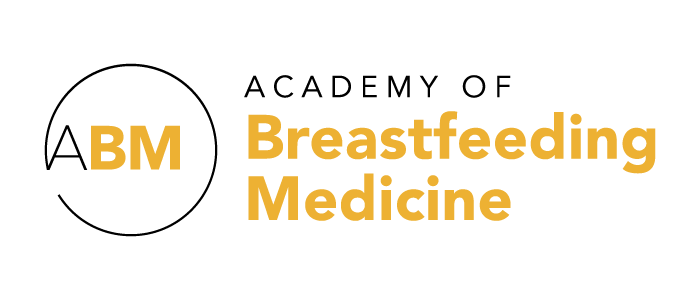
August 2024
ABM Statement on The Importance of Human Milk to Reduce the Risk of NEC in Premature Infants
Necrotizing enterocolitis (NEC) is a serious gastrointestinal problem primarily affecting premature infants. The optimal nutrition for premature infants is their mother’s milk (MOM), as it decreases the risk of significant complications of prematurity, most notably NEC1. Pasteurized donor human milk (PDHM) is recommended when MOM is unavailable, insufficient, or contraindicated, as it is also associated with less NEC2. Current human milk fortifiers are also recommended, as they do not increase NEC3,4.
However, mothers cannot always supply enough milk for their infants, and there is currently not enough PDHM in the United States for all premature infants. The best way to decrease NEC is to promote early and frequent milk expression, skin-to-skin contact, and direct breastfeeding when appropriate by the healthcare team. Adopting public policies that increase mothers' milk supply for these infants, such as paying for and ensuring access to designated NICU lactation support and effective breast pumps, is essential. Additionally, public policies to financially support mothers, such as paid maternity leave and tax credits for the time and effort to supply milk for their sick babies, are necessary.
Some families are not able to feed their babies MOM and/or may choose not to use or do not have adequate access to PDHM. Though not ideal, in these situations, artificial breast milk substitutes (or infant formula) may be the only option available to feed these infants. Infant care management should be based on shared decision-making by the clinician and family based on all the available evidence and resources.
Public policies are needed to expand access to PDHM and improve governmental and private financial support for donor milk banks. As only human milk is associated with the best outcomes for infants, formula companies, hospitals, and medical organizations should adopt the WHO International Code of Marketing of Breast-milk Substitutes and refrain from advertising and promoting infant formula to families when it is not medically necessary and when it is not the recommended best option for infant feeding.
Written on behalf of the Academy of Breastfeeding Medicine by:
Lawrence Noble, MD
Department of Pediatrics
Icahn School of Medicine at Mount Sinai and New York City Health & Hospitals
Elmhurst, New York, NY, USA
Lori B. Feldman-Winter, MD MPH FABM NABBLM-C
Department of Pediatrics
Cooper University Healthcare
Cooper Medical School of Rowan University
Camden, NJ, USA
Ann Kellams, MD IBCLC FABM FAAP NABBLM-C
Professor of Pediatrics
Vice Chair of Clinical Affairs, Department of Pediatrics
University of Virginia
Charlottesville, VA, USA
Adora Okogbule-Wonodi, MBBS FAAP
Clinical Associate Professor of Pediatrics & Child Health/Neonatology
Howard University College of Medicine/Howard University Hospital
Washington, DC, USA
Julie Ware, MD MPH IBCLC NABBLM-C FABM FAAP
Department of Pediatrics
Cincinnati Children’s Hospital Medical Center
University of Cincinnati College of Medicine
Cincinnati, OH, USA
-
Altobelli E, Angeletti PM, Verrotti A, Petrocelli R. The impact of human milk on necrotizing enterocolitis: a systematic review and meta-analysis. Nutrients. 2020 May 6;12(5):1322.
-
Li Y, Chi C, Li C, Song J, Song Z, Wang W, Sun J. Efficacy of donated Milk in early nutrition of preterm infants: a meta-analysis. Nutrients. 2022 Apr 21;14(9):1724.
-
O'Connor DL, Kiss A, Tomlinson C, Bando N, Bayliss A, Campbell DM, Daneman A, Francis J, Kotsopoulos K, Shah PS, Vaz S. Nutrient enrichment of human milk with human and bovine milk–based fortifiers for infants born weighing< 1250 g: a randomized clinical trial. The American journal of clinical nutrition. 2018 Jul 1;108(1):108-16.
-
Jensen GB, Domellöf M, Ahlsson F, Elfvin A, Navér L, Abrahamsson T. Effect of human milk-based fortification in extremely preterm infants fed exclusively with breast milk: a randomised controlled trial. EClinicalMedicine. 2024 Feb 1;68.
|